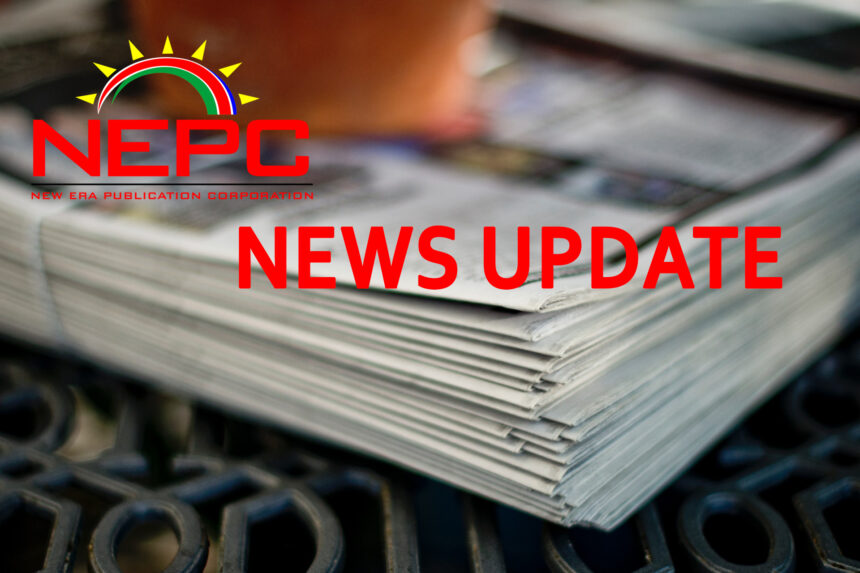For many Namibians, especially young people, they have learnt of the Pohamba presidency – 2005 to 2015, but cannot speak much of the challenges and accomplishments of that time. If anything, no one would have told his story better than himself, ‘Kapitaholo’.
With every chapter, one could not wait to read the next one. The suspense left hanging does not allow the “cooling-off period”. In his book, Pohamba tells it all.
They say, “if we don’t tell our own stories, no one else will.” To that, let me thank his excellency president Hifikepunye Pohamba, Namibia’s second president, for telling his story. If anything, his life to liberate Namibia from the yoke of colonialism, coupled with that romance of Kambosho, Namibia’s second first lady, is truly a moving masterpiece. A must-read autobiography for all Namibians, especially those studying history and political science.
Before diving into the Pohamba autobiography that was published on 30 September 2024, titled ‘Footprints of Hifikepunye Pohamba’, I had the opportunity to read his excellency Dr. Sam Shafishuna Nujoma’s autobiography titled ‘Where others Wavered’. All autobiographies provide that rich history of Maharero, Witbooi, Mandume, Bebi and the many martyrs, plus today’s living heroes and heroines.
A combined reading of these two breath-taking autobiographies would make the reader understand and draw a logical conclusion that indeed the duo deserve to be recognised and honoured for their unwavering commitments and sacrifices fighting colonialism and oppression to advance freedom and independence that Namibians enjoy today. Theirs was a spirit of “no retreat, no surrender”.
Pohamba, just like Nujoma, spoke of his early childhood upbringing and living under the reign of terror brought by apartheid South Africa, where many political activists were arrested, tortured, and killed for fighting against oppression.
Surely, in their time, Nujoma and Pohamba, fighting for freedom and independence was already a death penalty by the colonial forces. As such, their determination to keep mobilising the nation and international community speaks volume.
Without a shadow of a doubt, the duo are truly Namibian heroes, to whom the nation will forever remain indebted for their sacrifices. In all their works aimed towards the rooting-out of apartheid and colonialism, the country and her people were what ignited the burning desire to fight the brutal oppressive regime.
That can all be summed up with late president Hage Geingob’s call when he and Pohamba – together with other freedom fighters – landed at the now Hosea Kutako International Airport on 18 June 1989, and unequivocally pronounced that “Independence or death, we shall win.” Yes, that prophecy has come to pass. Namibia had won political freedom, with economic freedom still yet to be realised, but slowly and surely getting there.
As the saying goes, president Nujoma brought peace and independence by uniting all Namibians together, so is setting up the structures of a democratic State, which came with so many challenges – given the fears and mistrusts, bantustans ideology, and the notion of reconciliation. All those are some of the issues one had to deal with in a diplomatic way. Nujoma successfully did that!
Coming to the Pohamba presidency, it was one that was defined as “continuing the legacy of Nujoma”.
Now, after reading the autobiography, the jigsaw puzzle makes more sense. For nation building and development – political, economic, and social, Namibia needed a like-minded individual, in the shoes of Nujoma, that understood and could execute the Swapo agenda without fear or favour. With Pohamba, it was the time to start addressing issues one by one for the good and best interest of the citizenry.
In his detailed autobiography, there is no question that Pohamba had dedicated his life to the independence of Namibia.
Indeed, from the minute he joined the Ovambo People’s Organisation (OPO), which was a brainchild leading to Swapo, Pohamba had totally married the quest for freedom and statehood of Namibia.
Given the many sacrifices one had to make, it begs the question, what triggered Pohamba’s political consciousness? It was him witnessing acts of brutality against farmworkers whilst working for Tsumeb Corperation Limited (TCL).
Black children who came begging for food at the TCL compound had the police called on them leading to abuse, assault, and arrest.
Combined with the unfair labour contract system and brutalisation of fellow citizens, his consciousness was troubled.
Amongst many others, the reasons that prompted him to join the liberation struggle, as narrated.
For the Pohamba legacy, so much was done during his tenure. It was whilst reading his autobiography that one saw the works Pohamba had put on to build a fair and just society, where all Namibians could share the cake equally.
When Namibians hear and see some of the following things, know that those are the many footprints of ‘Kapitaholo’ to the nation, which are just a tip of the iceberg: Neckartal Dam, War Vets Packages, Anti-Corruption Commission, downsizing presidential security detail, conservancies, Namibia Institute of Public Administration and Management, zebra-style gender equality, stopping the Botswana Defence Force’s shoot-to-kill policy, university campuses across the country, upgraded road infrastructure network – such as Liselo-Linyanti-Sanqwali-Kongola, dividing Kavango into East and West, Independence Memorial Museum, and many more deliverables. In short, Pohamba’s autobiography is a class by itself. In it, one would see the playing down of one’s ego, loyality to the cause, respect towards all, meaning of commitment, sacrifice, and dedication, so is love for the family and country. Surely, Pohamba was and remains a great statesman and a liberation hero of our times. In him, Namibia was blessed to have such a great leader.
*Dr Joseph Mulife Muchali is a student of political studies. The views expressed in this article are his own, and do not represent anyone or any organisation.


